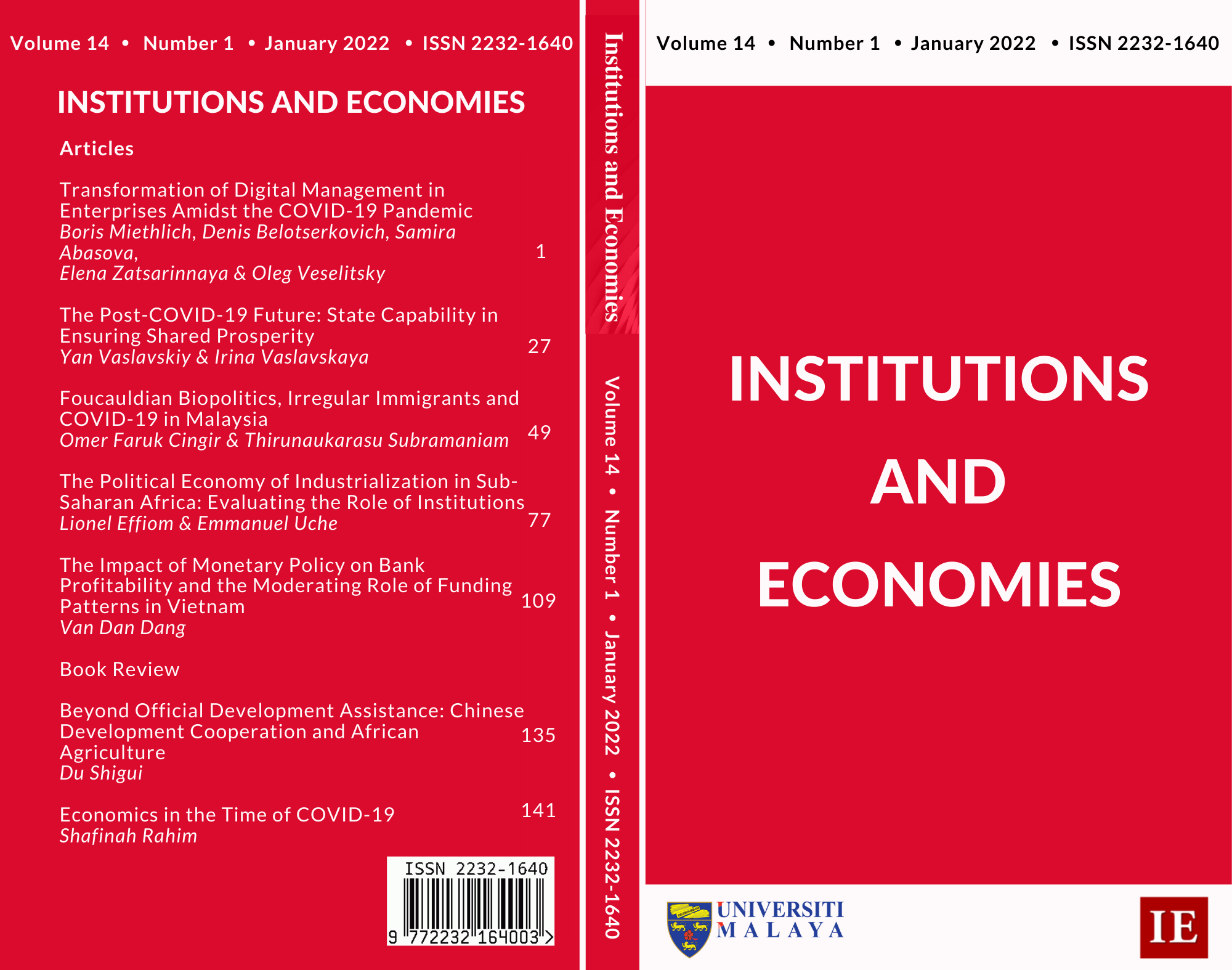The Political Economy of Industrialization in Sub-Saharan Africa: Evaluating the Role of Institutions
DOI:
https://doi.org/10.22452/IJIE.vol14no1.4Keywords:
Industrialization, Sub-Saharan Africa, Institutions, Pool Mean Group Panel Autoregressive Distributed Lag (PMG-ARDL), Augmented Mean Group (AMG)Abstract
Sub-Saharan Africa has recently witnessed rising growth rates, but the continent is still largely not industrialised. Mainstream empirical diagnosis has identified the paucity of physical and human capital as the main culprit. However, with the increasing inflow of capital into the continent, such arguments have become hackneyed. A possible culprit identified in the evolving development literature is the quality of institutions. How much has the quality of institutions, structured largely by the prevailing political economy of individual states, influenced Africa’s industrial performance? This study deploys descriptive and analytical methodologies to proffer answers to these questions. The estimates obtained from the Pool Mean Group Panel Autoregressive Distributed Lag (PMG-ARDL) as well as the Augmented Mean Group (AMG) panel estimators point strongly to the fact that institutions are bane of industrialization in Sub-Saharan Africa (SSA). Specifically, we find evidence that in the long run, regulatory quality, rule of law and control of corruption all impact the manufacturing subsector negatively and significantly. The panacea is not only within the matrix of optimal resource allocation, but must integrate the entire political and sociological process, involving governments at all levels, non-governmental organisations (NGOs) and faith-based groups.
Downloads
Downloads
Published
How to Cite
Issue
Section
License
Submission of a manuscript implies: that the work described is original, has not been published before (except in the form of an abstract or as part of a published lecture, review, or thesis); that is not under consideration for publication elsewhere; that its publication has been approved by all co-authors, if any, as well as tacitly or explicitly by the responsible authorities at the institution where the work was carried out. Transfer of copyright to the University of Malaya becomes effective if and when the article is accepted for publication. The copyright covers the exclusive right to reproduce and distribute the article, including reprints, translations, photographic reproductions, microform, electronic form (offline and online) or other reproductions of similar nature.
An author may self-archive the English language version of his/her article on his/her own website and his/her institutions repository; however he/she may not use the publishers PDF version which is posted on www.ijie.um.edu.my. Furthermore, the author may only post his/her version, provided acknowledgement is given to the original source of publication and a link must be accompanied by the following text: The original publication is available at www.ijie.um.edu.my.
All articles published in this journal are protected by copyright, which covers the exclusive rights to reproduce and redistribute the article (e.g. as offprint), as well as all translation rights. No material published in this journal may be reproduced photographically or stored on microfilm, in electronic database, video disks, etc., without first obtaining written permission from the publishers. The use of general descriptive names, trade names, trademarks, etc., in this publication, even if not specifically identified, does not imply that these names are not protected by the relevant laws and regulations.
The copyright owners consent does not include copying for general distribution, promotion, new works, or resale. In these cases, specific written permission must first be obtained from the publishers.








